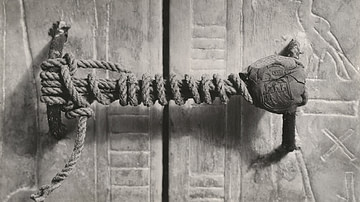Review

| Rating: | |
|---|---|
| Title: | Information: A Historical Companion |
| Author: | Ann Blair & Paul Duguid & Anja-silvia Goeing & Anthony Grafton |
| Audience: | University |
| Difficulty: | Medium |
| Publisher: | Princeton University Press |
| Published: | 2021 |
| Pages: | 881 |
This large book is both an essay collection and a comprehensive scholarly encyclopedia. By looking at how people have been handling information since 1450, the four editors show us that information has been processed in large quantities centuries before the internet. This academic reference book will benefit scholars and students of book history and intellectual history. Because of the approachable writing style, history enthusiasts will also find the book's entries enjoyable to read.
The internet only changes how people process information instead of creating the idea of 'information.' As soon as humans developed writing around 3400 BCE, we found many ways to record information from tax records to poetry and from legal proceedings to dictionaries. The disciplines of book history, intellectual history, and media history are notable fields that examine the changes and continuities of information processing in society. In Information: A Historical Companion, four established scholars in these disciplines have written, edited, and compiled 13 long essays and 101 short encyclopedic entries on this topic. These essays and entries provide a comprehensive account of how information has been recorded and transmitted since 1450, a decade after the invention of the printing press. The book's main focus is to examine how the phenomenon of the 'information state' began to form around 1450. Governments and politicians then and now give special attention to collecting data and information to better understand and control their people. University history students and scholars will benefit greatly from this collection, and history enthusiasts will also enjoy having this volume as a reference guide on their shelves.
The book has two parts. Part One, roughly 300 pages long, contains 13 long essays. These essays, in chronological order, cover a broad time frame from how information was transmitted on the Silk Road to modern telecommunication. The essays connect key technologies like government-funded archives, the printing press, and the telegraph to broader historical concepts such as commercialization, empiricism, and globalization. This multidisciplinary approach shows how the public, in the past and now, often overlook the tremendous ideological and social influences the ways we process information can have. For example, in the eighth essay, "Documents, Empire, and Capitalism in the 19th Century," contributor Craig Robertson of Northeastern University discusses how countries have processed ethnographic information. Robertson looks at how the United States in the 19th century processed the background of immigrants and compiled them into statistics as a basis for immigration legislation. The essay also looks at how other countries, such as India, Britain, and the Netherlands, used similar methods to better understand the demographics of their people.
Part Two, about 550 pages long, holds 101 encyclopedia entries covering specific ideas such as maps, databases, intellectual property, etc. The entries are limited to a digestible length of 1500 to 3000 words. To help readers navigate these many entries, the book has two helpful tables of contents, one alphabetical and one thematic. The thematic table of contents groups the 101 topics discussed into nine categories: concepts, formats, genres, objects, people, practices, processes, systems, and technologies. Because the book's underlying focus is on how states have used information since 1450, the categories of 'formats,' 'people,' and 'practices' might be the most relevant to read.
Both long essays and short entries could be read independently, and all of them are accompanied by a bibliography that helps readers to find further research materials. A comprehensive glossary is also provided. Only a few essays or entries have images, but because of the clarity of the writing, readers will not find the content difficult to read.
The four editors, Ann Blair, Paul Duguid, Anja-Silvia Goening, and Anthony Grafton, are all experienced history scholars. Blair and Goening are both professors at Harvard University. Duguid teaches at the University of California, Berkeley, and Grafton is Henry Putnam University Professor of History at Princeton University. The book also benefits from 107 contributors, including prominent historians like Peter Burke, Richard R. John, and Hannah Marcus. Students from a variety of historical disciplines will benefit from this volume. The book, although designed as a reference, can also be read for pleasure because all essays and entries are written in an approachable yet informative style.
About the Reviewer
Cite This Work
APA Style
Zou, Z. (2022, November 29). Information: A Historical Companion. World History Encyclopedia. Retrieved from https://www.worldhistory.org/review/309/information-a-historical-companion/
Chicago Style
Zou, Zhihui. "Information: A Historical Companion." World History Encyclopedia. Last modified November 29, 2022. https://www.worldhistory.org/review/309/information-a-historical-companion/.
MLA Style
Zou, Zhihui. "Information: A Historical Companion." World History Encyclopedia. World History Encyclopedia, 29 Nov 2022, https://www.worldhistory.org/review/309/information-a-historical-companion/. Web. 24 Apr 2025.




